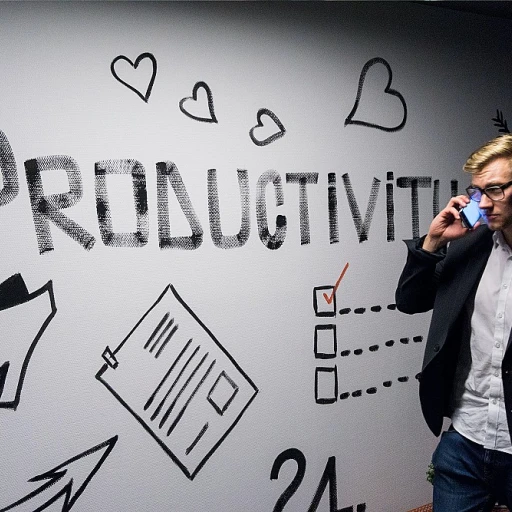
Understanding the Role of Coaching in Professional Development
{"Understanding the Role of Coaching in Professional Development":"Coaching is a crucial tool for advancing one's career, playing a transformative role in professional development. It offers employees, managers, and leaders the opportunity to enhance their skills and advance their career trajectories within the workplace. But what does this coaching relationship truly entail?
Facilitating Growth and Skill Enhancement
At its core, coaching focuses on facilitating growth and honing an individual's capabilities. A professional coach, certified by reputable organizations such as the International Coach Federation (ICF), guides employees in honing their critical thinking, leadership skills, and adaptability. This personal coaching fosters a sense of accountability and empowers clients to take ownership of their professional journey. Regular coaching sessions, tailored to the unique needs of the client, ensure that learning and improvement are ongoing processes.
Maintaining Professionalism and Ethical Standards
Another significant aspect of effective coaching is the emphasis on maintaining professionalism and adhering to ethical standards. Coaches adhere to a code of ethics that encompasses respect, integrity, and confidentiality, ensuring that the coaching career progresses in an ethical manner that benefits both the individual and the organization. The ethics professionalism promotes sets the tone for the entire workplace, establishing a culture of trust and respect.
Developing the Leader Within
Professional coaching is instrumental in fostering leadership within an organization. By nurturing the inherent talents at every level, coaching helps to build a robust leadership team that can drive significant improvements in work efficiency and team dynamics. As part of this leadership development, coaching provides managers with the tools they need to inspire and motivate their teams, creating a positive ripple effect throughout the workplace. This link to enhancing workplace efficiency illustrates how productivity coaching can be further explored to achieve these outcomes: enhancing workplace efficiency.
In summation, coaching is not merely about imparting knowledge or skills; it's about fostering a culture where employees are empowered to reach their potential, ethically and professionally. Through coaching, employees become more engaged, invested, and productive, ensuring the long-term success of both the individual and the organization.
Key Elements of Effective Coaching Strategies
Cultivating a Productive Coaching Relationship
In today's fast-paced workplace, establishing effective coaching relationships is vital to fostering professionalism. Whether you're a manager, leader, or employee, engaging in professional coaching can significantly enhance your career trajectory and work-life quality.- Understanding Client Needs: The foundation of any successful coaching lies in comprehensively understanding the client's aspirations and career goals. Professional coaches are adept at identifying areas for improvement and creating tailored strategies for growth. Engaging in a transparent dialogue allows both the coach and client to align on objectives and set realistic expectations.
- Setting Clear Goals: A critical step in effective coaching involves defining clear, achievable goals that resonate with the client's professional aspirations. This helps maintain accountability and provides a roadmap for evaluating progress. By aligning these goals with broader team objectives, employees can contribute more effectively to organizational success.
- Maintaining Ethical Standards: Ethical considerations are paramount in the coaching relationship. Coaches must adhere to established codes of ethics, such as those outlined by the ICF, to ensure they respect client confidentiality and approach coaching with integrity. This strengthens trust and fosters a positive environment for personal and professional growth.
- Regular Feedback and Open Communication: An essential element of a successful coaching relationship is ongoing feedback. Regular sessions encourage critical thinking and self-reflection, allowing the client to refine skills and adapt strategies as needed. Open communication fosters a supportive atmosphere where learning is mutual and continuous.
Challenges in Implementing Coaching for Professionalism
Overcoming Obstacles in the Coaching Relationship
Navigating the complexities of implementing coaching for professionalism can be daunting, especially in dynamic workplaces where every employee has distinct needs. Coaching professionals encounter several challenges while aiming to cultivate professional growth. Understanding these potential hurdles is vital for leaders and managers to ensure the effectiveness of coaching initiatives. Firstly, establishing a strong coaching relationship is fundamental. Coaches must focus on building trust and rapport with employees, often by adhering to strict ethical standards and a code of ethics like those outlined by the ICF. This foundational trust is crucial for encouraging employees to engage fully with the coaching process and allows for personal coaching to be more impactful. Another significant challenge involves aligning the coaching goals with the organization's objectives. Professional coaching must enhance both individual and organizational growth. This necessitates ongoing communication between the coach, client, and leadership team to ensure that the coaching sessions impact employees' career development and overall team effectiveness. Moreover, varying levels of readiness for coaching among employees can pose difficulties. Not all employees or clients may be prepared to embrace coaching, which may impact their engagement and learning. Coaches must therefore tailor their approach, employing skills that accommodate diverse learning needs and individual career aspirations. Timing can also complicate the coaching process. Professionalism coaching demands time, which can conflict with work deadlines and responsibilities. Scheduling coaching sessions that accommodate both the coach's availability and the employees' work commitments requires careful planning. Lastly, measuring the impact of coaching on enhancing professionalism and employee engagement remains a challenge. While the emphasis is on boosting team morale and nurturing critical thinking skills, tangible metrics can be elusive. Despite this challenge, organizations continue to explore strategies, often supported by insights from experts who assist in assessing progress and making data-driven adjustments. For a more in-depth understanding of strategies employers are using to improve workplace professionalism, consider exploring effective incentive programs that organizations are implementing to enhance engagement and commitment.Measuring the Impact of Coaching on Employee Engagement
Quantifying the Effectiveness: Gauging Coaching's Impact on Employee Engagement
Evaluating the impact of coaching on employee engagement isn't just about numbers; it's an exploration of how transforming professional and personal coaching can propel teams and individuals alike. Understanding this dynamic can reveal how coaching translates into improved workplace behaviors and heightened professionalism. A robust approach to measuring this impact involves several tools and techniques:- Surveys and Feedback: Conducting surveys and soliciting feedback from employees who have experienced coaching can offer direct insights. This is critical for understanding how professional coaching affects engagement levels, work satisfaction, and productivity.
- Performance Metrics: Tracking changes in performance metrics before and after coaching sessions provides concrete data. Professional coaches can help employees achieve new levels of productivity and efficiency, enhancing their contributions.
- Qualitative Assessments: Engaging in conversations and interviews can help ascertain shifts in ethical thinking, career development, and critical skills. Assessments enrich quantitative data, revealing deeper insight into how employees have grown.













